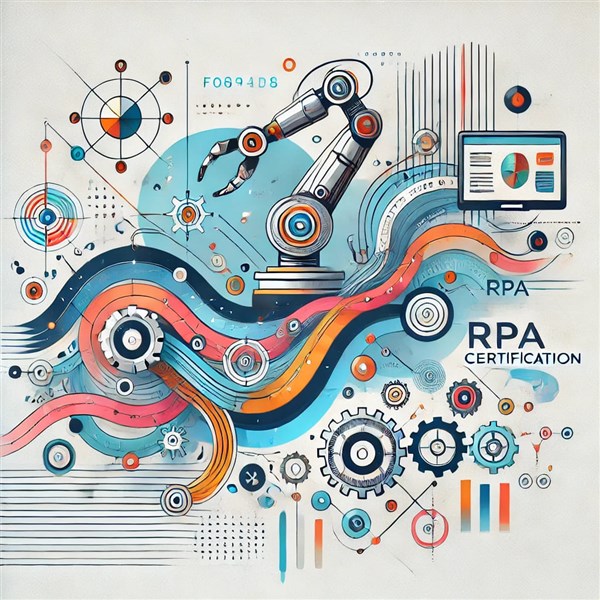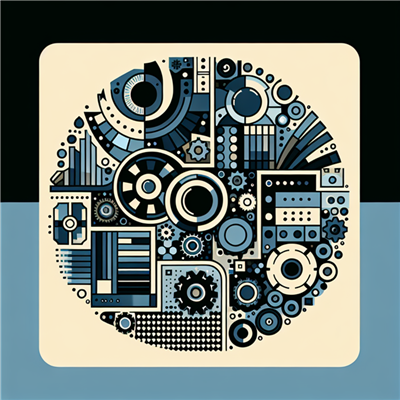
In the era of digital transformation, Robotic Process Automation (RPA) is reshaping the way businesses operate. By automating routine tasks, RPA frees up human resources for more complex activities and increases operational efficiency. Given the importance of automation, an RPA certification has become a sought-after credential that validates a professional’s expertise in this high-demand field. In this blog, we will explore the value of RPA certifications, the skills they impart, and how they contribute to a successful career in automation across various industries.
Understanding RPA and Its Growing Significance
RPA enables businesses to automate repetitive, rule-based tasks through software bots, which can mimic human actions like logging into applications, extracting data, and processing transactions. It’s a powerful tool for improving efficiency, reducing errors, and enhancing productivity. RPA is widely applicable across industries such as banking, healthcare, retail, and insurance, with a projected growth of the global RPA market to exceed $10 billion by 2023, indicating the strong demand for RPA skills in the workforce.
As more organizations integrate RPA solutions, the demand for professionals certified in RPA has skyrocketed. An RPA certification demonstrates proficiency in implementing RPA systems, designing workflows, and configuring bots, making it a valuable credential for anyone interested in automation.
Top Benefits of Earning an RPA Certification
1. Enhanced Career Opportunities and Demand for RPA Skills
One of the primary benefits of earning an RPA certification is the expansion of career opportunities. With companies rapidly adopting automation, there’s a significant demand for skilled RPA professionals who can lead and execute these initiatives. By obtaining an RPA certification, you gain a competitive advantage in the job market, as companies actively seek individuals with proven skills in automation.
Some popular job roles for certified RPA professionals include:
- RPA Developer
- Process Automation Analyst
- RPA Architect
- Automation Consultant
- RPA Project Manager
2. Higher Earning Potential
RPA-certified professionals often command higher salaries due to their specialized skills. According to recent data, RPA professionals can earn around 30% more than their non-certified peers in similar roles. An RPA certification, therefore, not only increases your employability but can also lead to a higher salary as automation expertise continues to be valued in the market.
3. Mastery of In-Demand Automation Tools and Platforms
RPA certification programs typically cover industry-leading tools like UiPath, Automation Anywhere, Blue Prism, and Kofax. These tools have become standard in RPA implementation, and understanding them is essential for automating processes successfully. Certification programs teach the basics of using these platforms and offer hands-on practice, allowing you to develop expertise in popular tools used across industries.
For instance, UiPath Certified Professionals learn how to design, develop, and deploy bots that can handle high volumes of repetitive tasks, such as data entry and reconciliation. Knowledge of multiple tools can broaden your skill set, making you a versatile automation specialist.
Key Skills Gained Through RPA Certification
An RPA certification provides a solid foundation in critical automation skills, from identifying automation opportunities to developing and managing bots. Here are some key competencies gained through RPA certification:
1. Process Analysis and Automation Strategy
Effective automation begins with understanding which processes can and should be automated. RPA certification programs teach process analysis skills, enabling you to identify workflows that are ideal for automation. By learning how to evaluate processes for automation potential, you’ll be able to strategically contribute to an organization’s automation roadmap.
2. Bot Development and Workflow Design
Bot development is the heart of RPA. Certification programs teach you how to design and configure bots, build workflows, and connect automation to larger business processes. You’ll learn to create automated solutions for data entry, form processing, report generation, and other repetitive tasks, saving companies significant time and resources.
3. Error Handling and Maintenance of Automated Solutions
Automation solutions need ongoing maintenance to remain effective. Certified RPA professionals learn to troubleshoot and handle errors in bots to ensure that automation runs smoothly. As a certified professional, you’ll know how to monitor bots, update them when business processes change, and resolve issues quickly.
4. Security and Compliance Knowledge
RPA implementation involves handling sensitive data and working within regulatory frameworks, especially in industries like finance and healthcare. RPA certification programs typically include training in security best practices and compliance requirements. You’ll learn to design automation solutions that meet security standards and protect data integrity, which is critical for any organization working with confidential information.
Industry Applications of RPA Certification
1. Banking and Financial Services
The banking industry relies heavily on RPA for tasks like data entry, KYC (Know Your Customer) processing, compliance checks, and loan processing. Certified RPA professionals help banks improve accuracy and speed by automating these tasks, resulting in better customer experiences and reduced operational costs.
2. Healthcare
Healthcare institutions use RPA to handle patient records, appointment scheduling, and insurance claims. RPA-certified professionals in healthcare play a vital role in improving patient care by automating administrative processes and ensuring that critical information is accessible to healthcare providers.
3. Manufacturing
Manufacturing companies use RPA to optimize inventory management, procurement, and order processing. Certified RPA professionals in manufacturing can automate routine back-office tasks, allowing the workforce to focus on core production activities and ultimately increasing efficiency.
4. Retail and eCommerce
Retailers and eCommerce businesses rely on RPA for tasks like order processing, inventory management, and customer service. RPA-certified professionals in this sector enable seamless customer interactions by automating order tracking, returns processing, and other customer service workflows.
How to Obtain an RPA Certification
To earn an RPA certification, you typically need to complete a certification program offered by leading automation vendors like UiPath, Blue Prism, or Automation Anywhere. Here’s a basic outline of what the certification process entails:
- Choose an RPA Platform: Decide which RPA platform to specialize in, based on industry demand and your career goals.
- Complete the Training Modules: Most certification programs offer online courses and hands-on labs to teach you about the platform.
- Practice with Real-World Scenarios: Apply what you’ve learned through practice exercises that simulate real-world automation challenges.
- Take the Certification Exam: Finally, take the certification exam to validate your skills. This typically involves practical and theoretical assessments.
Conclusion
With the rapid adoption of automation across industries, the value of an RPA certification continues to rise. This certification equips you with the skills to automate business processes, manage RPA tools, and contribute to an organization’s digital transformation efforts. For professionals interested in a career in automation, RPA certification is an investment that can open doors to high-demand roles, enhance earning potential, and provide a competitive edge in the workforce.
Whether you’re a data analyst, IT specialist, or business process expert, earning an RPA certification can help you build a strong foundation in automation and make a meaningful impact in your career. As businesses increasingly adopt RPA, certified professionals will be at the forefront of driving efficiency, reducing costs, and improving productivity.
Investing in an RPA certification from Koenig Solutions can significantly boost your career prospects in the burgeoning field of Robotic Process Automation. Equip yourself with this sought-after skillset and steer your career towards success.







COMMENT